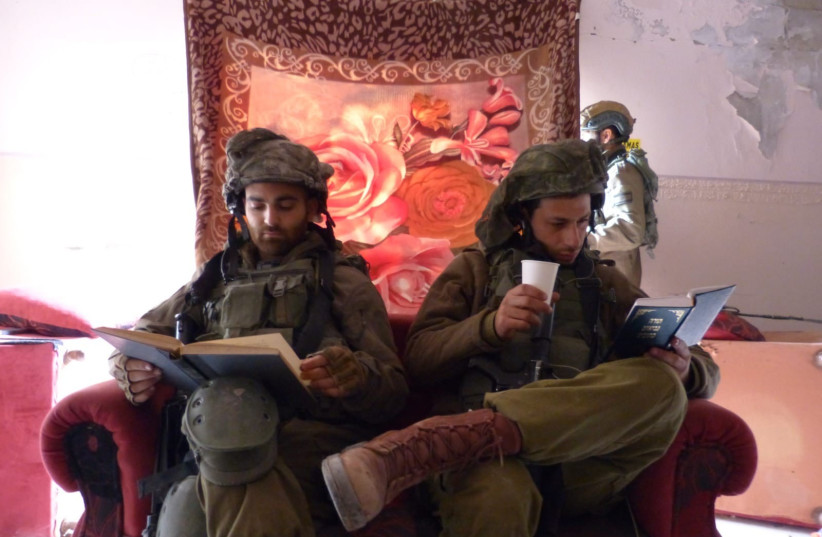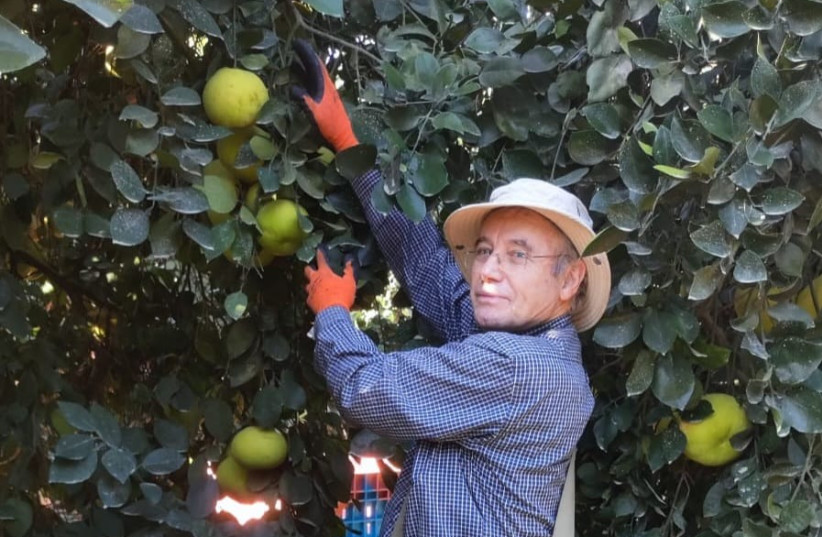Community Embrace
Ruti, the mother of Shauli Greenglick, who tragically fell in Gaza last month, shared her heartwarming experience with me:
Recently, we retreated to a guest house in the Arava with our kids, just to catch our breath. My husband and sons, in mourning for Shauli, found themselves without a synagogue where they could recite Kaddish. That's when our daughter Michal turned to a local Facebook group for help.
The response was nothing short of incredible. Neighbors from near and far visited us, forming a minyan for services three times a day. Each session began with my husband sharing memories of Shauli, turning these moments into a truly inspiring experience.
But the kindness didn't stop at prayers. Offers of massages, meals, day trips, and even organic vegetables poured in. The people of Israel’s selfless giving touched our hearts deeply.
Reflecting on the shiva, what moved me most were the strangers who came to support us. People from Be’er Sheva, the Golan Heights, Herzliya, and visitors from London arrived just to share in our grief and to express their gratitude. Their presence was a powerful reminder of our collective strength and unity.

The Entire Tanach in 100 Days
For three months, Nahal reservists lived in a girl’s high school on Kibbutz Hafetz Haim in central Israel. Rabbi Zevik Harel, the school’s rabbi, wrote to me as follows:
At the ceremony held when the reservists were leaving, I shook everyone’s hand, including that of Barak Fuchs, whose regular job is that of a programmer for Israel Aerospace Industries. I’d seen him during breaks sitting in the study hall and asked him: “Which book were you studying?” Elated, he replied, “Today, I was privileged to complete the entire Tanach!”
He related that when he was called up for reserve duty, he tried to think of something that would be spiritually fulfilling, and decided that whenever he’d have some spare time, he’d study Tanach with the commentary of Rabbi Adin Steinsaltz.
“I told myself that this was a once-in-a-lifetime opportunity to read the entire Tanach, and, to be honest, it really helped me feel connected,” he shared. “Our company was going in and out of Gaza non-stop, and during breaks, I’d sit and study. We didn’t know when we’d be released from army service, but the guys joked that as soon as I would complete Tanach, then we’d be sent home. And believe it or not, I’ve now reached the end of the book of Chronicles, the last book in the Bible, and we’re going home!”
When Barak heard that I would be writing up his story, he asked to add the following: “I have ADHD and find it difficult to focus. I never had a daily study program. But I want to share with all my brothers and sisters: Don’t ever give up on learning! There are ways that you, too, can learn. I personally learn with earphones at different times of the day, whenever I have a chance.
“We need to understand that we may be challenged, but we shouldn’t allow ourselves to use that as an excuse not to study. It’s only a question of finding the way to overcome this challenge.”
The Fruits of Our Land
It’s now the Hebrew month of Shevat, the letters of which form an acronym for, Sh’nishma besorot tovot – May we hear good news.
In the midst of all the darkness, noise, sorrow, and grief of this war, we can still hear some good news – we just have to keep an ear out for it.
Israelis have been returning to their roots, dusting off some long-forgotten traditions. Think of Tu BiShevat this year as opposed to last year. All of a sudden, the values of agriculture and working the land have taken center stage in the world of the average urban Israeli; the picture of a tractor plowing the fields elicits emotion as we realize just how much we appreciate our farmers. We begin to internalize the understanding that in order to harvest crops, you first have to plant seeds, water them, and wait because processes, in nature as in life, take time and patience.

The significance of the land of the Land of Israel, and issues like sovereignty and security have intensified. The slogan of Nachal Oz, the kibbutz that reaches right up to the Gaza border, “Up to the Last Furrow,” takes on new meaning.
In the last three months, it wasn’t Palestinians or even Thais who harvested the fruits of our land. These days, everyone is volunteering to help with the picking— us, in all our diverse glory.
Pictured: My father who volunteered to pick grapefruits near the Tze’elim army base.
Parashat Bo: Free Will
And Moses and Aaron performed all these miracles before Pharaoh, and the Lord hardened Pharaoh’s heart, and he did not let the Children of Israel out of his land.
(Shemot 11:10)
In addition to the many open miracles described in this parashah, we find another, more subtle one: free will. One of the central themes in Bo is what goes on in Pharaoh’s heart, as the Torah describes his vacillations in great detail: one minute, he agrees to let the Jewish people go, and the next moment, he changes his mind. Generations of philosophers have discussed whether Pharaoh even had free choice, and if he did, why does it say that God hardened his heart?
One of the answers states that the more you choose evil, the less free will you have. At first, everyone is free to choose, but after enough bad decisions have been made, one’s ability to shift to a better path decreases over time.
One descends toward corruption, losing all sensitivity and compassion. One’s conscience is no longer struggling against evil as it once did.
The more Pharaoh clung to his evil and cruel ways, the further away he moved from showing mercy. The same applies to a drug addict or an alcoholic. The deeper one sinks into addiction, the harder it is to call it quits. (The same may apply to all of us, regarding any of our bad habits.) We do have a choice, but when we insist on going along a path leading the wrong way, then the correct path becomes more and more remote. The opposite is also true. The more we choose to do good, the further we move away from evil.
The Wisdom of Tu BiShevat
A teacher once told me that there are four words that characterize our current period: “I,” “here,” “now,” and “everything.” Tu BiShevat, she said, is one of the most important days of the year because it is the antithesis of these words. This festival of trees is celebrated not in spring but in winter, not when everything is already blooming and ripening, but at a time when we don’t yet see the results. We don’t have what we want here and now; instead, we have to go out into nature and invest in the future. For now, we can only prepare the ground, plant, water, believe, and wait.
It would seem that modern man is no longer bound to the slow processes of nature. We move in an urban environment between a house, parking lot, elevator, car, and office, carrying a device that controls us more than we control it. But it’s precisely because of this that Tu BiShevat beckons us, reminding us that there are slow and hidden processes, that there is development beneath the surface, and that we don’t see everything the moment it happens.
In an era where we get impatient after five seconds if we don’t yet see two blue checks on our WhatsApp message, we still receive a once-a-year reminder to cultivate these almost forgotten traits: restraint, perseverance, long-term investment, dedication, and devotion. In the end, they’ll yield positive results and ripe fruits. Happy Tu BiShevat!
